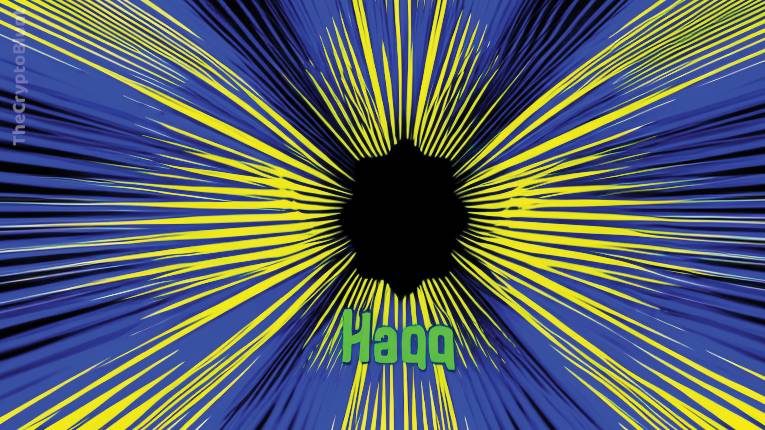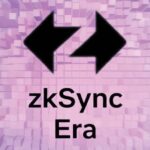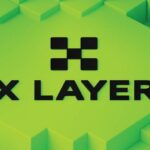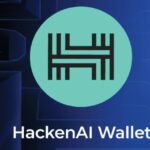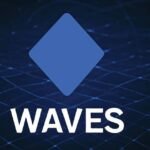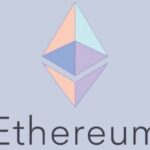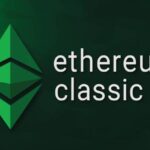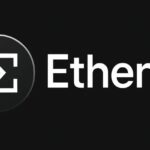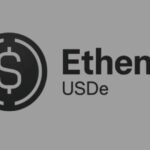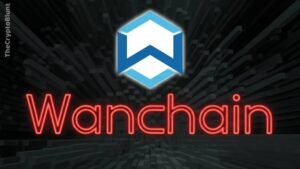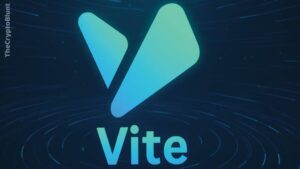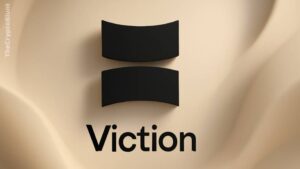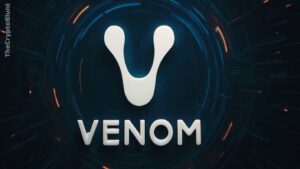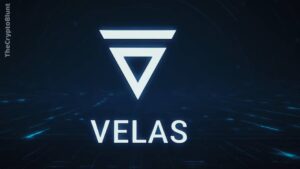When I first started exploring the vast landscape of cryptocurrencies and blockchain, I was captivated by its potential for innovation. Yet, like many, I also wondered about its real-world relevance beyond mere speculation. Then I encountered the Haqq Ecosystem, and it opened my eyes to a profound and ethically driven approach to digital finance.
The Haqq Ecosystem is more than just another blockchain project; it’s a pioneering initiative designed to create a Sharia-compliant (adhering to Islamic law) financial ecosystem using blockchain technology. At its core is the Haqq Network, a scalable and interoperable blockchain, and its native cryptocurrency, Islamic Coin (ISLM).
In essence, the Haqq Ecosystem aims to:
- Provide a Sharia-Compliant Digital Economy: Offer financial products and services that align with Islamic principles, such as avoiding interest (riba), excessive uncertainty (gharar), and prohibited activities (haram).
- Empower the Global Muslim Community: Create ethical and accessible financial tools for the world’s 1.8 billion Muslims, fostering economic inclusion and charitable giving.
- Leverage Blockchain for Good: Utilize the transparency, security, and efficiency of blockchain to build a fair and ethical financial system.
- Foster Innovation within Islamic Finance: Serve as a hub for developers and projects building ethical decentralized applications (dApps).
This deep-dive article will guide you through the Haqq Ecosystem, exploring its unique principles, how its blockchain and cryptocurrency function, and the tangible benefits it seeks to deliver. We’ll demystify core blockchain concepts, address common crypto misconceptions, and provide a beginner’s perspective on getting involved in this ethically-driven digital frontier. Our goal is to equip you with the knowledge to understand Haqq’s vision and its potential impact.
Join me as we uncover the fascinating intersection of faith, finance, and cutting-edge technology within the Haqq Ecosystem.
Your Foundational Knowledge: Understanding Core Crypto Concepts
Before we delve into the specifics of Haqq, let’s lay a solid groundwork by understanding the fundamental concepts that power all cryptocurrencies and blockchain technology. These are the essential building blocks for navigating Web3 safely and intelligently.
- Cryptocurrency: Imagine digital money that isn’t issued or controlled by any central bank or government. Instead, it uses advanced encryption (cryptography) to secure transactions and verify the creation of new units. Unlike the money in your bank, which is a digital representation of traditional fiat currency controlled by intermediaries, cryptocurrencies operate on a decentralized network. This means no single entity has control. Instead, a global network of computers collectively verifies and records transactions, ensuring transparency, security, and resistance to manipulation. Islamic Coin (ISLM) is the native cryptocurrency of the Haqq Ecosystem, serving as its primary medium of exchange, utility, and governance token.
- Blockchain: Think of a continuously growing digital record book, distributed across thousands of computers worldwide, rather than being stored in one central location. Each new set of transactions is bundled into a “block,” and once verified, it’s cryptographically linked (or “chained”) to the previous block. This creates an unbroken, chronological, and tamper-proof record. Once a transaction is on the blockchain, it’s virtually impossible to alter or delete, making it incredibly secure against fraud. The Haqq Network is this underlying blockchain for the Haqq Ecosystem.
- Decentralization: This is the core philosophy underpinning blockchain and much of Web3. It means that power and control are distributed among many participants in a network, rather than being concentrated in a single, central authority. This distributed nature makes the network highly resilient to censorship, single points of failure, and manipulation by any one entity. The Haqq Network is designed to be decentralized, with its community and validators playing a key role in its operation and governance.
- Consensus Mechanism (Proof-of-Stake for Haqq): How do all these distributed computers agree on which transactions are valid and which blocks to add to the chain? They use a “consensus mechanism.”
- Haqq Network uses a Proof-of-Stake (PoS) consensus mechanism, specifically built with CometBFT (formerly Tendermint Core) and leveraging the Cosmos SDK. In PoS, instead of “mining” (which consumes vast amounts of energy as in Proof-of-Work systems like Bitcoin), participants “stake” (lock up) a certain amount of their cryptocurrency (ISLM, in this case) as collateral. These “stakers” (often called validators) are then chosen to create new blocks and validate transactions. The more ISLM a validator stakes, the higher their chance of being chosen, and they earn rewards for their participation. This method is significantly more energy-efficient and scalable than Proof-of-Work, aligning with Islamic principles of resource conservation.
- Wallets (and Keys): A cryptocurrency wallet isn’t where your crypto is “stored” in the traditional sense; rather, it’s a tool that holds your private keys. These private keys are unique, secret codes that prove you own your cryptocurrency on the blockchain and allow you to authorize transactions. The Haqq Wallet is a non-custodial wallet, meaning you retain full control over your private keys and, thus, your funds. If you lose your private keys or seed phrase (a list of words that can regenerate your private keys), you lose access to your crypto.
- Smart Contracts: Think of smart contracts as self-executing agreements or programs stored directly on a blockchain. They automatically run when pre-defined conditions are met, without the need for intermediaries. For example, a smart contract can automatically transfer funds from one party to another once a specific condition is fulfilled. Haqq Network is EVM (Ethereum Virtual Machine) compatible, meaning developers familiar with Ethereum can easily build and deploy smart contracts on Haqq, adhering to its ethical guidelines.
- DeFi (Decentralized Finance): This refers to an ecosystem of financial applications built on blockchain technology, aiming to recreate traditional financial services (like lending, borrowing, trading) in a decentralized, permissionless, and transparent way. The Haqq Ecosystem aims to facilitate Sharia-compliant DeFi, offering ethical alternatives for lending, borrowing, and other financial activities, avoiding practices like interest (riba).
- NFTs (Non-Fungible Tokens): Unlike cryptocurrencies where each coin is identical and interchangeable (like regular money), NFTs are unique, one-of-a-kind digital assets. They represent verifiable ownership of a specific item, whether it’s a piece of digital art, a collectible, or even real estate. The Haqq Ecosystem supports NFTs, enabling the creation and trading of digital assets within an ethical framework.
What is the Haqq Ecosystem? A Deep Dive into Ethical Blockchain
The Haqq Ecosystem is a bold vision brought to life by the Haqq Network and its native Islamic Coin (ISLM). At its heart, it is a blockchain network specifically designed to adhere to Sharia principles (Islamic law). This adherence is not just a marketing slogan; it’s deeply embedded in the technology, governance, and philosophy of the entire ecosystem.
The term “Haqq” itself means “Truth” in Arabic, reflecting the project’s commitment to transparency, fairness, and ethical conduct in the digital space.
The Core Vision: Ethics-First, Scalable, and Inclusive Finance
The Haqq Ecosystem is built upon several foundational pillars:
- Sharia Compliance: This is the paramount principle. All financial transactions, dApps, and mechanisms within the Haqq Network are designed to be “Halal” (permissible) according to Islamic finance. This involves strict avoidance of:
- Riba (Interest): Charging or paying interest.
- Gharar (Excessive Uncertainty/Risk): Engaging in highly speculative or unclear transactions.
- Maysir (Gambling): Activities involving pure chance or speculation without productive effort.
- Haram (Prohibited Activities): Transactions related to industries like alcohol, pork, gambling, or unethical weapons.
- To ensure this, Haqq has a Sharia Board composed of respected Islamic scholars who review and endorse the network’s protocols and applications.
- Economic Empowerment for Muslims: The ecosystem aims to provide a safe and ethical entry point into the digital economy for the global Muslim population, which has historically faced challenges in finding religiously compliant financial solutions in conventional markets.
- Philanthropy (Evergreen DAO): A unique feature of Islamic Coin is its embedded philanthropic mechanism. A portion of every newly minted ISLM coin is automatically allocated to the Evergreen DAO (Decentralized Autonomous Organization). This DAO then funds Islamic charities and projects worldwide, integrating charitable giving (Sadaqah and Zakat) directly into the currency’s structure.
- Scalability and Interoperability: Built using the Cosmos SDK, the Haqq Network is designed for high transaction throughput, fast finality, and seamless communication with other blockchains through the Inter-Blockchain Communication Protocol (IBC). Its EVM compatibility also allows existing Ethereum developers to easily migrate or build dApps on Haqq.
- Community Governance: The Haqq Ecosystem is community-driven, with ISLM token holders having the power to propose and vote on key decisions that shape the network’s future through decentralized governance mechanisms.
Key Components of the Haqq Ecosystem: Building an Ethical Digital Future
The Haqq Ecosystem is a holistic platform, comprising several interconnected elements that work in harmony to deliver its ethical and innovative vision.
- Haqq Network – The Ethical Blockchain:
- EVM Compatibility: This is crucial. Developers familiar with building on Ethereum can easily deploy their smart contracts and dApps on Haqq. This significantly lowers the barrier for entry for many developers.
- Cosmos SDK & CometBFT: This robust foundation provides high scalability, fast transaction finality, and the ability to communicate with other Cosmos-based blockchains. It makes Haqq a powerful and efficient Layer 1 blockchain.
- Sharia Oracle: A groundbreaking feature unique to Haqq. The Sharia Oracle is an on-chain registry of Halal Certificates and an ethical protection mechanism. It ensures that only Sharia-compliant smart contracts can interact with the Haqq Wallet. This is a critical layer of automated ethical filtering. While users can still use other wallets like MetaMask to interact with any smart contract on Haqq (bypassing the Sharia Oracle if they choose), the Haqq Wallet provides a secure, curated, and compliant experience.
- Decentralized: Operated by a network of validators globally, ensuring no single point of control and maintaining censorship resistance.
- Islamic Coin (ISLM) – The Native Sharia-Compliant Cryptocurrency:
- Primary Utility: ISLM is the lifeblood of the Haqq Network. It’s used for:
- Transaction Fees (Gas): Paying for all operations on the Haqq Network.
- Staking: Users can stake their ISLM to participate in the network’s Proof-of-Stake consensus, securing the blockchain and earning rewards. This staking mechanism is designed to be Sharia-compliant, akin to a profit-sharing model (Mudarabah) rather than interest (riba).
- Governance: ISLM holders participate in the decentralized governance of the Haqq Network, voting on proposals and guiding its development.
- Medium of Exchange: Facilitating seamless, ethical transactions for goods and services within the Haqq Ecosystem and beyond.
- Evergreen DAO: A built-in philanthropic mechanism. A portion of every newly minted ISLM (e.g., 10%) is automatically allocated to the Evergreen DAO. This DAO then uses these funds to invest in and support Islamic charities and sustainable projects worldwide. This embeds social responsibility directly into the currency’s economic model.
- Deflationary Principles: While new ISLM coins are minted through staking rewards, the overall tokenomics are designed with principles that align with Islamic finance’s emphasis on real value and avoiding arbitrary printing, reminiscent of the stability of precious metals. The limited total supply (100 billion ISLM) also contributes to this.
- Primary Utility: ISLM is the lifeblood of the Haqq Network. It’s used for:
- Haqq Wallet – Your Secure & Sharia-Compliant Digital Gateway:
- Non-Custodial: You control your private keys, ensuring full ownership and security of your funds.
- Islamic Coin (ISLM) Focus: Tailor-made to securely store, send, and receive ISLM.
- Sharia Oracle Integration: The key distinguishing feature. The Haqq Wallet integrates with the Sharia Oracle to filter and display only Sharia-compliant smart contracts and dApps, providing a trusted environment for users. Users are thus guided towards ethical interactions.
- User-Friendly Interface: Designed to blend Web2 user experience with Web3 security, making it accessible for beginners.
- Staking & DeFi Access: Enables users to stake their ISLM directly from the wallet to earn rewards and access other Sharia-compliant DeFi opportunities within the Haqq Ecosystem.
- News Feed & Notifications: Keeps users informed about the latest developments within the Haqq Network and Islamic Coin.
- Evergreen DAO – The Philanthropic Arm:
- Community-Driven Charity: A decentralized autonomous organization governed by ISLM token holders.
- Sustainable Funding: Receives a portion of every newly minted ISLM, creating a continuous and sustainable funding source for charitable initiatives.
- Transparency: All transactions and funding decisions made by the Evergreen DAO are recorded on the blockchain, ensuring transparency and accountability in charitable giving.
- Haqq Ecosystem dApps & Partners:
- The Haqq Network is designed to be a vibrant hub for a wide range of decentralized applications (dApps) that adhere to Sharia principles. This includes:
- Sharia-Compliant DeFi Platforms: Lending, borrowing, and trading protocols that avoid interest and excessive risk.
- NFT Marketplaces: Platforms for creating and trading digital collectibles that align with Islamic values (e.g., avoiding inappropriate content).
- Gaming: Ethical play-to-earn (P2E) games.
- Supply Chain & Certification: Leveraging blockchain for transparent and traceable processes for Halal certification of products (e.g., GoMeat).
- Remittance Services: Lowering fees for cross-border money transfers, particularly beneficial for Muslim diaspora communities.
- Digital Identity Systems: Creating secure, decentralized digital identities.
- Educational Platforms: Promoting Islamic knowledge and ethical finance.
- The ecosystem is actively forming partnerships with various projects and institutions (like IIUM University Malaysia, Brighty, Bazaar.Art, etc.) to build out this diverse range of Sharia-compliant applications.
- The Haqq Network is designed to be a vibrant hub for a wide range of decentralized applications (dApps) that adhere to Sharia principles. This includes:
Consider adding an infographic here: “The Haqq Ecosystem: Pillars of Ethical Finance.” Visually represent “Haqq Network (The Blockchain)” as the base. Show “Islamic Coin (ISLM)” as the central currency. Branch out to “Haqq Wallet (User Interface & Sharia Oracle),” “Evergreen DAO (Philanthropy),” and “Sharia Board (Ethical Oversight).” Connect these to “Sharia-Compliant dApps (DeFi, NFTs, Gaming, etc.).” Use arrows to show flow and interaction. Highlight keywords: “Sharia-Compliance,” “Decentralization,” “Transparency,” “Community,” “Impact.”
The “Why”: Real-World Applications and Benefits of the Haqq Ecosystem
The Haqq Ecosystem, with its unique focus on Sharia-compliance, offers compelling real-world applications and benefits for a diverse global audience, extending far beyond just the Muslim community.
For Users (Individuals & Ethically-Conscious Investors): Aligning Values with Finance
- Financial Inclusion for Muslims: A significant portion of the global Muslim population has been underserved by traditional financial systems due to the pervasive nature of interest-based transactions. Haqq provides a long-awaited solution, allowing Muslims to participate in the burgeoning digital economy without compromising their religious beliefs.
- Ethical Investment Opportunities: Beyond just Muslims, the Haqq Ecosystem appeals to a broader demographic of ethically-conscious investors. The inherent design of ISLM and the Sharia Oracle promotes responsible investing by excluding projects involved in prohibited or highly speculative activities.
- Transparent Charitable Giving: The Evergreen DAO automatically allocates a portion of newly minted ISLM to charity. This creates a transparent, auditable, and sustainable mechanism for philanthropy (Sadaqah and Zakat), ensuring funds reach legitimate causes effectively.
- Empowering Community Participation: Through decentralized governance, ISLM holders have a direct say in how the Haqq Network evolves and how the Evergreen DAO’s funds are utilized, fostering a strong sense of community ownership and impact.
- Lower Fees for Remittances: Blockchain technology inherently offers lower transaction fees for cross-border payments compared to traditional banking. The Haqq Network can significantly reduce the cost of remittances, especially benefiting Muslim diaspora communities sending money home.
- Secure & User-Friendly Access: The Haqq Wallet is designed for ease of use while maintaining the highest security standards, making it accessible even for those new to crypto. Its integration with the Sharia Oracle provides an additional layer of trust and guidance.
For Developers and Projects (Businesses in Web3): Building on an Ethical Foundation
- Access to a Massive Underserved Market: The global Muslim population represents an enormous, largely untapped market for Sharia-compliant digital products and services. Building on Haqq provides direct access to this highly engaged demographic.
- Pre-Built Ethical Framework: Haqq offers a blockchain infrastructure with Sharia-compliance baked into its core. The Sharia Board’s oversight and the Sharia Oracle simplify the process for developers to ensure their dApps meet ethical standards, saving time and resources.
- EVM Compatibility and Cosmos SDK Advantages: Developers can leverage existing Ethereum tooling and smart contract languages while benefiting from the scalability and interoperability provided by the Cosmos SDK.
- Strong Community Support: Projects building within the Haqq Ecosystem benefit from a dedicated and ethically motivated community, which can translate into early adoption and strong user engagement.
- Funding Opportunities: The Evergreen DAO might provide funding or support for promising Sharia-compliant projects building on the Haqq Network.
- Enhanced Credibility and Trust: Launching a project on a Sharia-compliant blockchain like Haqq immediately enhances its credibility and trustworthiness within ethical and Islamic finance circles.
For the Broader Blockchain Industry: Pushing Ethical Boundaries
- Pioneering Ethical Blockchain: Haqq is a leader in demonstrating how blockchain technology can be adapted and governed to align with specific ethical and religious frameworks, setting a precedent for future value-aligned blockchains.
- Showcasing Real-World Utility: By focusing on practical financial solutions for a massive demographic, Haqq highlights blockchain’s ability to solve real-world problems beyond speculative trading.
- Promoting Responsible Innovation: The emphasis on avoiding riba, gharar, and haram activities encourages a more responsible and sustainable approach to decentralized finance, potentially influencing the broader DeFi landscape.
- Bridging Traditional and Digital Finance: Haqq acts as a bridge between traditional Islamic finance and the cutting-edge world of Web3, fostering mutual understanding and potential collaboration.
- Advancing Transparency in Philanthropy: The Evergreen DAO model offers a blueprint for transparent and auditable charitable giving on the blockchain, potentially revolutionizing how non-profits operate.
Dispelling the Myths: Addressing Common Crypto Misconceptions (and Haqq’s Context)
As I continued my crypto journey, I encountered numerous myths that often clouded people’s judgment. It’s essential to address these head-on, especially when discussing a values-driven project like Haqq.
- “Cryptocurrency is only for criminals and illicit activities.”
- Reality: This myth is deeply ingrained but largely outdated. While some illicit actors do use crypto (just as they use traditional cash or banking systems), the transparent and immutable nature of public blockchains means every transaction is permanently recorded and traceable. This often makes tracing illegal funds easier for law enforcement than with untraceable cash. The vast majority of crypto transactions are for legitimate purposes, from remittances to everyday purchases and innovative business models.
- Context for Haqq: Haqq’s entire foundation is built on ethical and Sharia-compliant principles. It actively seeks to prevent illicit activities by explicitly avoiding those deemed “haram” (prohibited) in Islamic law, such as gambling or interest-based transactions. The Sharia Oracle mechanism within the Haqq Wallet filters out non-compliant dApps, ensuring users primarily interact with legitimate and ethical applications. The network’s focus on transparency and philanthropy directly counters the notion of crypto as a tool for crime.
- Trustworthiness Principle: “When engaging with any digital currency or blockchain platform, it’s crucial to understand that transactions on a public blockchain are permanently recorded and transparent. While unfortunately, some illicit activities have been associated with cryptocurrencies, the very design of public blockchains, which Haqq helps to refine with ethical guidelines, enhances accountability rather than enabling illicit activity. The Haqq Ecosystem is built to foster a responsible digital economy, empowering its users to conduct legitimate financial transactions and protecting them from nefarious actors through its Sharia-compliant framework.”
- “All crypto is a scam/Ponzi scheme.”
- Reality: The crypto space, unfortunately, has seen its share of fraudulent projects and “pump-and-dump” schemes. However, it’s a grave error to dismiss all cryptocurrencies this way. Legitimate projects offer real technological innovation, solve genuine problems, have transparent development processes, and are built by dedicated teams. Their value is derived from their utility, adoption, and the problems they solve, not solely from attracting new investors in a pyramid scheme.
- Context for Haqq: Haqq is fundamentally structured to avoid such pitfalls. Its core principles of Sharia compliance directly prohibit the kind of speculative, interest-based, or gambling-like activities often associated with scams. The presence of a legitimate Sharia Board provides an independent ethical oversight. Furthermore, Islamic Coin’s tokenomics includes the Evergreen DAO, which allocates a portion of new coins to verifiable charitable causes, demonstrating a commitment to tangible social good rather than pure financial speculation for profit. The utility of ISLM is tied to gas fees, staking, and governance within a growing ecosystem of ethical applications.
- Authoritativeness Tip: “To assess the legitimacy of any blockchain project, including Haqq and its Islamic Coin, it’s essential to look beyond market speculation and examine its fundamental purpose and technological underpinnings. Does it solve a real problem (e.g., provide ethical financial solutions for a community)? Is its code auditable? Does it have a clear and publicly available roadmap, a history of consistent development, and a dedicated team? Does it have reputable partners and advisors? Haqq’s transparent Sharia Board, its focus on real-world utility for a specific demographic, and its commitment to philanthropy through the Evergreen DAO are strong indicators of its legitimacy as an ethics-first blockchain. We believe in transparent education, encouraging our readers to always conduct their own deep due diligence, consult official project documentation (like their whitepaper), and evaluate the technology’s actual utility and track record very carefully.”
- “Crypto is too complicated/technical for average people.”
- Reality: While the underlying technology can be complex, many projects are actively working to simplify user experiences. Wallets are becoming more intuitive, and educational resources are abundant. The entry barrier is significantly lower than it was years ago.
- Context for Haqq: The Haqq Wallet is specifically designed with a “Web2 UX and Web3 security” approach, aiming for an intuitive and easy-to-use experience. By pre-filtering for Sharia-compliant applications via the Sharia Oracle, it removes a layer of complexity and risk for users who might otherwise struggle to identify ethical projects in the broader Web3 space. The ecosystem’s focus on education and accessibility is key to onboarding a wide range of users, including those new to digital assets.
- “Crypto is bad for the environment because of mining.”
- Reality: This myth primarily applies to older Proof-of-Work (PoW) blockchains like early Bitcoin, which indeed consume significant energy. However, the vast majority of newer blockchains, including Haqq, utilize more energy-efficient consensus mechanisms.
- Context for Haqq: The Haqq Network operates on a Proof-of-Stake (PoS) consensus mechanism. PoS is significantly more energy-efficient than PoW because it doesn’t rely on competitive computational power. Instead, network security is achieved by users “staking” their ISLM tokens. This aligns with Islamic principles of resource conservation and sustainability, making Haqq an environmentally conscious blockchain by design.
Getting Started: A Beginner’s Perspective on Acquiring & Using Islamic Coin (ISLM) and the Haqq Wallet
If the vision of ethical, Sharia-compliant finance appeals to you, you might be curious about how one might acquire and interact with Islamic Coin (ISLM) and the Haqq Wallet. This section provides a beginner-friendly overview. This information is purely for educational purposes and should not be considered financial, investment, or legal advice. Always prioritize security and conduct your own extremely thorough research before proceeding.
- Understanding What You’ll Need:
- Islamic Coin (ISLM): The native utility token of the Haqq Ecosystem.
- A Compatible Crypto Wallet (for holding ISLM):
- Haqq Wallet: This is Haqq’s own non-custodial wallet, highly recommended as it’s specifically designed for the ecosystem and integrates with the Sharia Oracle for ethical filtering. Download it from official app stores (Google Play, Apple App Store).
- MetaMask: A very popular browser extension and mobile app wallet that supports Ethereum and other EVM-compatible networks. Since Haqq Network is EVM-compatible, you can configure MetaMask to connect to the Haqq Network and manage your ISLM.
- Trust Wallet: A mobile-first self-custodial wallet that supports a wide range of cryptocurrencies and networks, likely compatible with Haqq Network.
- Hardware Wallets (Ledger, Trezor): For the highest level of security, particularly for larger amounts of ISLM, a hardware wallet is strongly recommended. They typically support EVM-compatible tokens. Always confirm specific token and network support with the wallet manufacturer’s official documentation.
- Acquiring Islamic Coin (ISLM):
- On Centralized Exchanges (CEX): This is often the most straightforward way for beginners to acquire ISLM.
- Step 1: Identify Exchanges: Check reputable crypto price tracking websites (like CoinMarketCap or CoinGecko) to see which centralized exchanges list ISLM (e.g., MEXC, Gate.io, KuCoin, LBank, etc.).
- Step 2: Sign Up and Complete KYC (Know Your Customer): This is mandatory for regulated exchanges. You’ll need to provide identification documents.
- Step 3: Deposit Fiat Currency (e.g., INR) or another Cryptocurrency: Fund your exchange account via bank transfer, UPI, or by depositing other crypto (like USDT, a stablecoin often used for trading).
- Step 4: Buy ISLM: Navigate to the trading section, find the ISLM trading pair (e.g., ISLM/USDT), enter the amount you wish to buy, and execute your order.
- Step 5: Withdraw ISLM to Your Self-Custodial Wallet: Once purchased, it’s generally recommended to withdraw your ISLM to your self-custodial wallet (like the Haqq Wallet or MetaMask configured for Haqq Network) for greater control and security. Ensure you select the correct network (the Haqq Network or a compatible chain). Always double-check the address!
- On Decentralized Exchanges (DEX): You can also acquire ISLM on a DEX, especially if you prefer decentralized trading. This typically requires more technical understanding and involves connecting your self-custodial wallet to a DEX that supports ISLM (e.g., certain DEXs within the Cosmos ecosystem or those that bridge to EVM chains).
- Step 1: Acquire Base Currency: You’ll need a base cryptocurrency (e.g., ETH or a stablecoin on an EVM-compatible chain, or a Cosmos-based token like ATOM for bridging) in your self-custodial wallet.
- Step 2: Connect Wallet to DEX: Go to a DEX that lists ISLM. Connect your MetaMask or Haqq Wallet.
- Step 3: Find ISLM Contract Address: This is critical. Search for the official ISLM contract address on reputable sources like CoinMarketCap or CoinGecko, or the official Haqq Network website. Be extremely cautious of fake contract addresses, which are a common scam.
- Step 4: Swap for ISLM: Select your base currency and then paste the ISLM contract address. Enter the amount you want to swap and confirm the transaction in your wallet. Adjust “slippage” settings if necessary for volatile tokens.
- On Centralized Exchanges (CEX): This is often the most straightforward way for beginners to acquire ISLM.
- Using the Haqq Wallet:
- 1. Download and Set Up: Download the Haqq Wallet app from your device’s official app store. Follow the instructions to create a new wallet or import an existing one. Crucially, securely back up your seed phrase offline and never share it with anyone. Your seed phrase is the ultimate key to your funds.
- 2. Transfer ISLM (if bought elsewhere): If you purchased ISLM on a CEX or another wallet, transfer it to your Haqq Wallet address. Ensure you select the correct network (Haqq Network).
- 3. Explore Features: Once your ISLM is in the Haqq Wallet, explore its features:
- Wallet Management: Send, receive, and view your Islamic Coin and other compatible digital assets.
- Sharia Oracle Integration: Notice how the wallet may filter or highlight Sharia-compliant dApps.
- Staking: Investigate options for staking your ISLM directly from the wallet to earn rewards and contribute to network security.
- News Feed: Stay updated on the latest developments within the Haqq Ecosystem.
- Connect to DApps: Explore various Sharia-compliant dApps (DeFi, NFTs, etc.) that are building on the Haqq Network, either directly within the wallet’s browser or by connecting your wallet to external dApp websites.
- 4. Stay Updated and Engage: Join Haqq’s official Telegram, Discord, and Twitter channels. This is vital for staying informed about app updates, ISLM token developments, community discussions, and new ethical projects launching on the network.
The Road Ahead: The Future of the Haqq Ecosystem
The Haqq Ecosystem is a relatively young but rapidly growing project with an ambitious roadmap. Its future development includes:
- Further dApp Expansion: Attracting more developers and projects to build a diverse range of Sharia-compliant applications across DeFi, NFTs, gaming, and real-world utility.
- Enhanced Interoperability: Strengthening connections with other major blockchain ecosystems through IBC and potential Layer 2 solutions on Ethereum (Haqq Ethiq is a proposed Ethereum Layer 2 for Islamic finance).
- Growing the Evergreen DAO’s Impact: Expanding its philanthropic reach and supporting more impactful projects globally.
- Continued Community Governance: Further decentralizing decision-making and empowering ISLM holders in the network’s evolution.
- Partnerships and Adoption: Forming strategic partnerships with Islamic financial institutions, universities, and businesses to drive mainstream adoption of Sharia-compliant blockchain technology.
- Research & Development: Continuing to innovate in areas like decentralized identity, tokenization of assets, and other applications that align with Islamic finance principles.
Conclusion: The Haqq Ecosystem – A New Dawn for Ethical Finance
The Haqq Ecosystem, powered by the Haqq Network and Islamic Coin (ISLM), represents a groundbreaking stride towards creating a digital financial world that is not only innovative and efficient but also deeply rooted in ethical and moral principles. It offers a unique and much-needed solution for the global Muslim community and serves as a powerful example of how blockchain technology can be leveraged to align with specific values.
By prioritizing Sharia-compliance, embedding philanthropy, and fostering a community-driven approach, Haqq is carving out a significant niche in the Web3 space. It’s demonstrating that the future of finance can be both technologically advanced and ethically sound.
Remember, responsible engagement with cryptocurrencies begins with knowledge and security. Approach the Haqq Ecosystem, or any crypto project, with a commitment to self-education, critical evaluation, and strong personal cybersecurity practices.
Are you ready to explore an ecosystem where your financial values can truly align with your digital assets? Download the Haqq Wallet, explore Islamic Coin, and become part of the community building a more ethical and inclusive Web3.

